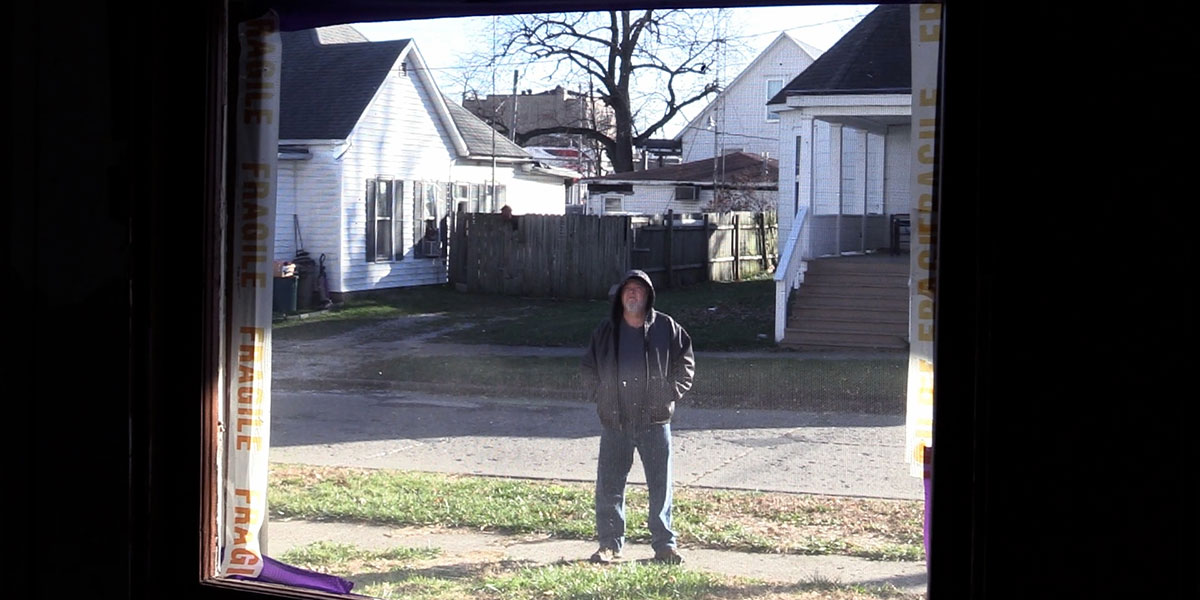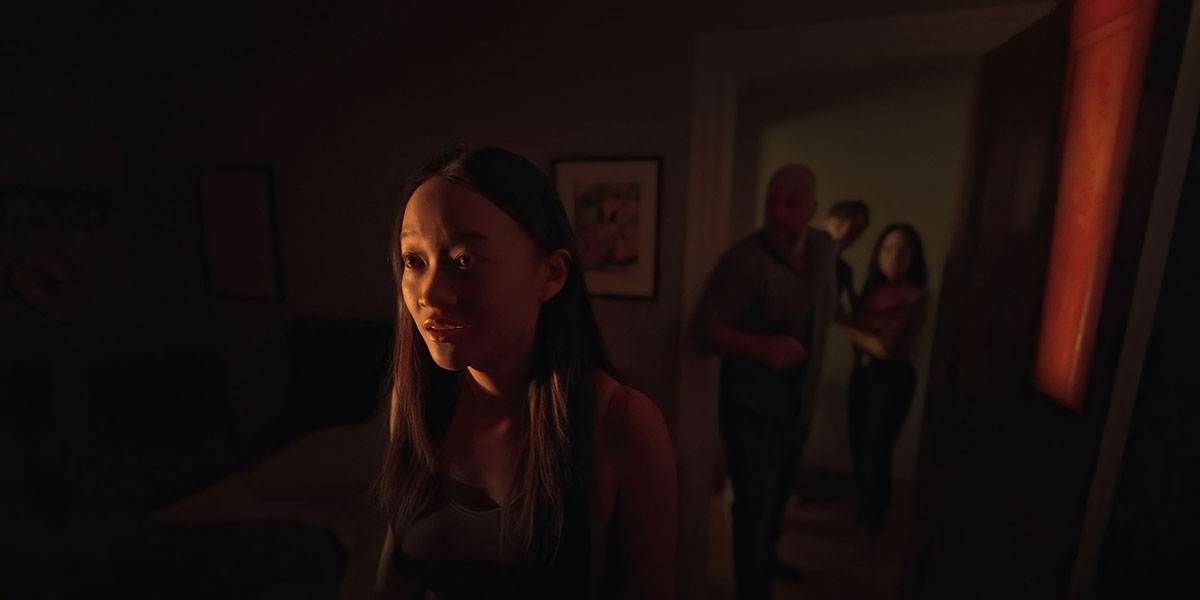TIFF Digest: Part 5
SATURDAY NIGHT
Coalescing with the 50th season of Saturday Night Live, in a move of either serendipitous coincidence or masterful marketing, is the Jason Reitman written and directed story of how the show all started, SATURDAY NIGHT. Recreating the chaotic 90 minutes leading up to the first-ever broadcast of Saturday Night Live, Reitman's film is a funny, nostalgic slice of life in the way that things never really go to plan until (sometimes) the very end. That is if you can survive the anxiety leading up to it.
SATURDAY NIGHT's cast is a solid mixture of knowns and unknowns, portraying a group of unknowns at the time. Dylan O'Brien's Dan Aykroyd, Corey Michael Smith's Chevy Chase, and Lamorne Morris' Garrett Morris are highlights through their charismatic performances. Eating up every morsel of hard-to-come-by screentime. And when I say hard-to-come-by, I mean it. SATURDAY NIGHT is overstuffed and underdeveloped in exploring individuality through the original SNL cast. Reitman and co-writer Gil Kenan in their attempt to include everything about that first show, end up relegating many of the comedians into after-thoughts. Understandably, the focus is on Lorne Michaels--a woefully miscast Gabriel LaBelle, buoyed by the fact that Michaels has little to no public persona--and his attempts to wrangle an unruly gaggle of actors before David Tebet (Willem Dafoe) pulls the plug. Still, it's ultimately distracting to have so many big names running in the background. In a way, the film plays as a self-indulgent promotion, dredging up the likeness of comedians--some of whom have unfortunately passed--to highlight the 50th anniversary of a show that, honestly, has lost a lot of its luster. But removing that glaring smudge and consuming the film as a standalone entity is still quite a blast. The anxiety-inducing powder-keg filmmaking style pairs perfectly with the frenetic pace and events taking place. Sometimes, the background noise gets too powerful, causing the dialogue to be nonexistent, but overall, the sound design works to effectively quicken your heart rate. While we know how the outcome of the night works out, some 50 years later, which can reduce some of the thrills of the film, it still is a fun and wildly entertaining trip down memory lane.
Presence
The great Steven Soderbergh is back in the director's chair after what is always a short absence—honestly, I don't think the man ever sleeps--to helm what is his most experimental film to date, Presence. Shot entirely from the POV of some ghostly entity, carefully floating throughout a house as a new family moves in, Soderbergh's latest film is a nuanced and incredibly entertaining tour de force from the storied director. Unlike anything he's made before, Presence feels like an evolution of what film can be. Blurring the line between the audience and the film, the original camera angling allows us to feel as if we, the audience, possess the agency to affect the outcome of the film's events.
As the first scene hits the screen, we see the real estate agent (Julia Fox) scramble into the house she's showing to our protagonist family (Lucy Liu, Chris Sullivan, Callina Liang, Eddy Maday) and somehow everything looks familiar, yet completely new. We, the spectral presence haunting the home, are immediately felt by Liang's daughter character in a meta moment of recognition that broaches the very boundaries of the lens. It is as if the character is acknowledging our presence--pun intended--as the voyeur. It feels strange that a film character recognizes the audience in a way, but it works exceedingly well here. Small pushes against the fourth wall are scattered throughout Presence where David Koepp's script flutters between the melodramatic teenage family drama and thrilling ghost story horrors, all the while, we remain hovering, silently watching as the menacing yet benevolent entity haunting the family's home. Within this fluidity of morality for ourselves is where Soderbergh soars. The drama between Maday and Liang as teenage siblings creates tension as a combination of cringe groans from a teenage boy bragging about receiving nude pictures to fury about toxic masculine braggadocio, reaching a boiling point where we feel as though we should be intervening. Such intervention is phenomenally orchestrated by the camera flying up the stairs and trashing Maday's exceedingly teenage-boy-decorated room. In essence, Soderbergh has found a way to provoke an emotional reaction from the audience and then allow them to feel like they acted on it through clever camera movement and sensational direction. Koepp's screenplay does hit a bit of a snag in the climactic moment of the film with some choppy dialogue that feels more removed than the rest of the film, but it’s a small dent in an otherwise exquisitely crafted cinematic experience. Not to mention, the finale left me in a stew of emotions ranging between heartbreak and terror that culminates in a collective out-of-body experience with the rest of the audience, where we float up above the clouds. All realize together that Soderbergh has pushed the boundaries of cinema with Presence; a groundbreaking achievement by all measures.
The Piano Lesson
Malcolm Washington's writing and directorial debut comes in the form of adapting August Wilson's play for the big screen. Washington's The Piano Lesson even takes a literal page out of Wilson's work by having multiple actors from the Broadway production in 2022 reprise their roles. Actors such as John David Washington, Samuel L. Jackson, Ray Fisher, and Michael Potts all return to their roles, while Washington also makes the incredibly prudent move to cast Danielle Deadwyler as Berniece Charles, whom she plays with the fire and passion that Deadwyler has come to be known for. The stories of the two projects are intertwined, sharing the same arc. Boy Willie (Washington) and his friend Lymon (Fisher) visit Willie's uncle Doaker Charles (Jackson), along with Willie's sister Berniece (Deadwyler), to work towards Willie's financial goal of being able to buy farmland back down south. All he needs to do is sell all the watermelon in the truck they drove up with and convince Berniece to sell their family's piano, a precious heirloom with a tragic history. A history that doesn't seem to be done haunting the Charles family.
As someone who wasn't aware of the full story from the Broadway production, the descent from family drama into supernatural horror was unexpected but fares well with the writing. The point of contention is Berniece's reluctance to sell the piano, given all her family has gone through to still have it, and Willie's negligence to confront the past and instead steamroll into what he believes is a more idealistic future. Ebbs and flows of deep-seated familial grief are fantastic backdrops for the ghostly elements of The Piano Lesson and Washington does well to never lean too far into the silliness of ghost stories. Instead, he opts for a more grounded approach, where the specters of the past can only be conquered by embracing the pain of the past, calling upon those who've come before you, and relying on their strength and resilience. While John David Washington has a tremendously charismatic and entertaining performance, the film would be nothing if not for Deadwyler's phenomenal abilities. She crushes everything in her wake with gravitas and the emotional weight that Wilson's story requires, elevating Washington's first directing project. Deadwyler is a force to be reckoned with, and you'll be hard-pressed to find a better performance this year.
While the performances were great, and the story a strong adaptation, The Piano Lesson is bogged down by some of Washington's unseasoned skills. The film relies too much on the material, at times feeling as if you're watching a recording of the play itself. Washington can continue to learn the power of the camera, the angles it can provide, and the depth it can bring to a story. By no means is it a bad debut, but one that Washington can continue to grow from, and I do not doubt in my mind that if there's anyone who can continue to get better, it's one of the Washington's.

It Doesn't Get Any Better Than This
You would imagine that not only buying a run-down duplex in an eerie neighborhood is a little unnerving, but also finding out that strangers line up outside this house in the middle of the night to simply stare at it. Eventually dispersing after multiple hours of... staring. Well, it would scare the hell out of me, but not so much for Rachel Kempf and Nick Toti who wrote, directed, and starred in their found footage horror film, It Doesn't Get Any Better Than This.
Rachel and Nick, out to create one of their films along with their friend Christian, end up purchasing the aforementioned duplex, thinking it would be the perfect haunting location for a seance or two. The only problem is that installed security cameras keep on recording hours on hours of footage of neighbors, close and distant, standing around the duplex and staring, motionless through the night. What's great about Rachel and Nick's film is that it doesn't succumb to the usual pitfalls of found footage films. Where the camera operator is terrified, sometimes running for their life like in Cloverfield, yet they continue to film for some godforsaken reason, Rachel and Nick effectively subvert this trope by effectively wrapping us up in the story of how they're trying to capture these supernatural or paranormal occurrences. Not to mention, Rachel and Christian's constant seances, along with Nick's desire to film, make the group much more grounded in their pursuit of continued filming instead of running for the hills. Their chemistry and humor make them that much more endearing, which in turn gives some real juice to the more terrifying elements of the film, elevating the stakes. However, this same humor, or more specifically the levity with which "the staring people" are met with, eliminates any real threat they pose. What should be a haunting mass of people is turned into a punchline time and time again. It's an entertaining idea, flipping the horror of It Doesn't Get Any Better Than This on its head but also turning a novel idea into a lukewarm, tonally inconsistent experience. The one true scare in the film is the result of a deafening noise that unveils the group's new obsession and, in turn, poses way too many unanswered questions on mythology and world-building. Eventually snowballing into a lackluster finish that left me thinking it could possibly, be a little better than this.




















